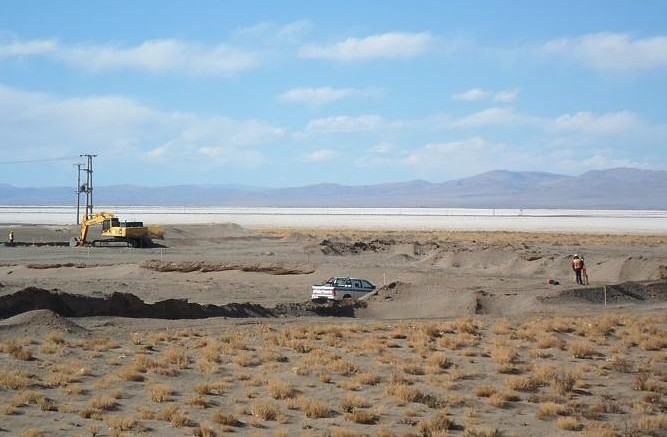Orocobre (TSX: ORL; US-OTC: OROCF) says its flagship Salar de Olaroz brine-based lithium project in the Puna region of Argentina’s northwestern province of Juyuy is expected to produce 17,500 tonnes per year of low-cost, battery-grade lithium carbonate before 2015.
Orocobre describes itself as the first developer of a large-scale lithium brine mine in two decades.
It reports that construction of the US$229-million project (including a US$20 contingency) — which began in November 2012 — was on time and on budget, and that it expects the lithium carbonate plant will operate by the end of November. Plant commissioning started in August.
The company is also making progress assessing the potential that more lithium brine within the Olaroz salt-lake salar could contribute to expanded production at a lower brine-supply development cost than in the current first phase of development.
On Oct. 23 Orocobre explained in a press release that the project’s 2011 resource estimate was based on relatively shallow drilling to a 200-metre depth. Two holes were recently drilled beyond 200 metres, and intersected a deeper sand unit.
Hole P301 was drilled 304 metres deep and hole P302 was drilled 323 metres deep. P301 encountered the top of the sand unit at 255 metres, with the unit extending beyond the hole at 304 metres, while P302 intersected the top of the sand unit at 220 metres, with the sand and some gravel extending below the drilling base at 323 metres — more than 100 metres thick.
Orocobre interprets the deeper sand unit as representing coarser alluvial fan sedimentation within the salar basin, preceding the deposition of the finer-grained sediments.
This coarser sedimentation could represent “an older equivalent to the extensive Archibarca alluvial fan that exists in this area today,” the company said. “The thick sand unit identified in holes P301 and P302 is interpreted to be a lateral equivalent to the older alluvial fan deposits identified in third-party drilling in Cauchari, south of Olaz. Those sands host an important part of the third-party resource in the Cauchari salar.”
Orocobre has a 66.5% stake in the project with partners Toyota Tsusho Corp. (25%) and JEMSE (8.5%), the Jujuy province mining and energy company.
The salar is 3,900 metres above sea level, on the main highway from northern Argentina to the major port of Antofagasta in Chile, 550 km west by road, and 40 km south of a major gas pipeline. A feasibility study puts the mine life at a minimum of 40 years, based on 15% of the resource.
According to an Oct. 15 presentation, the project would have high margins with cash-operating unit costs of US$2,000 per tonne of lithium carbonate at full production — excluding any potash credits — versus long-term price forecasts of US$5,000 to US$7,000 per tonne.


Be the first to comment on "Orocobre defines new exploration target"